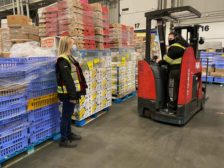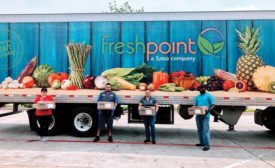Home » Keywords: » supply chain trends
Items Tagged with 'supply chain trends'
ARTICLES
Advice from three industry veterans for women wanting to grow their careers in this always-evolving industry.
Read More
Pandemic Pivots for Sysco and US Foods
How two foodservice distribution giants continue to impact the industry despite coronavirus challenges.
September 3, 2020
Consumer Brands Requests Commerce Department Take Leadership Role in Creating Supply Chain Index
CBA says index could serve as early warning system for critical supply chain disruptions.
May 14, 2020
How the Cold Food and Beverage Supply Chain is Performing During the COVID-19 Pandemic
Workplace safety initiatives, strategic reallocation of inventory, and online resources are keeping the cold chain moving, according to the GCCA.
March 23, 2020
How food producers can leverage blockchain to build consumer trust
Blockchain is poised to revolutionize the way food and beverage producers build consumer trust, improve food safety and perform compliance.
January 9, 2020
Small Business in Transportation Coalition warns of supply chain disruptions
As the House of Representatives is expected to vote to impeach the President, this could very well set off a chain of events.
December 18, 2019
Study: Artificial intelligence in supply chain market to reach $21.8B by 2027
The adoption of AI technologies creates new opportunities by leveraging new supply chain possibilities, speeding processes and making organizations more adaptable to changes in the future.
December 12, 2019
Elevate your expertise in refrigerated and frozen foods with unparalleled insights and connections.
Get the latest industry updates tailored your way.
JOIN TODAY!Copyright ©2025. All Rights Reserved BNP Media.
Design, CMS, Hosting & Web Development :: ePublishing











